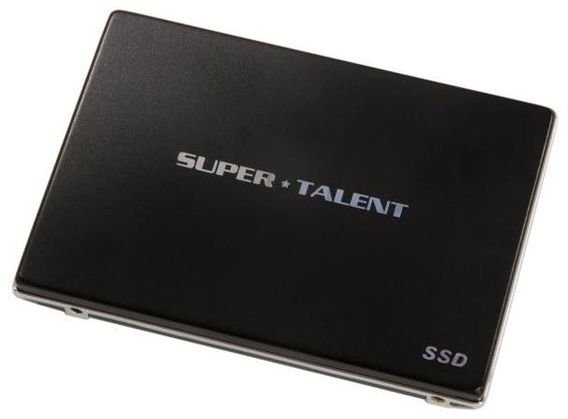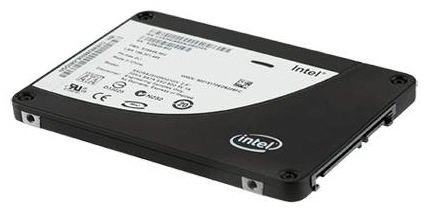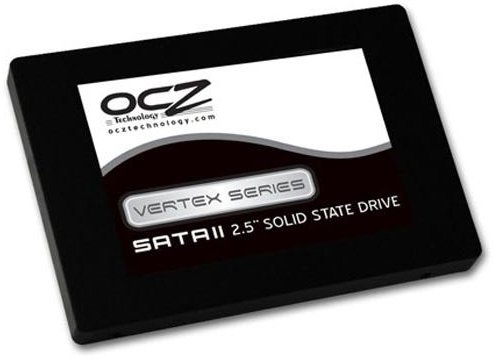Solid State Drive Buying Guide: Best Affordable SSDs
Cutting Edge Costs
Solid state hard drives are undeniably the next big thing in PC storage. Their speed potential is far and away greater than anything a mechanical drive can offer, they’re more reliable, they’re silent, they’re small, and they use only a single thimble full of power a day. But despite all those advantages, solid state hard drives have one big disadvantage - Price. While putting a solid state hard-drive into your laptop promises longer battery life and less worry about the potential for damaging your hard-drive if you carelessly forget to treat your laptop like its made of glass, the massive price is a huge hurdle.
But there is also a huge variance between the prices of different SSDs, and while laying down over $500 dollars for the best Intel SSDs may not be an option for everyone, forking out two hundred for a more typical SSD can be worthwhile. Unfortunately, doing this is more difficult than you’d expect, as there are major land-mines to avoid. Some budget SSDs have short expected life spans, low performance, and are nearly as power-hungry as mechanical competitors. Luckily, you can be assured the three drives listed here will give you your money’s worth.
OCZ Vertex Series 30GB
Important Update: Recent tests of the OCZ Vertex while in a “used” state show that these drives perform poorly after moderate usage. As a result, the Vertex drives are no longer recommended as of 6/25/2009.
OCZ is one of the new leaders in SSD technologies, and like many companies competing in this space, OCZ’s attempts come as direct result of its experience selling various RAM products. That said, there are significant parts of SSDs which do not directly relate to experience producing RAM. The reason why Intel managed to quickly become one of the most difficult competitors in this market is that the processor used to control the SSD is just as important as the quality of memory used in the SSD. Intel’s past experience designing processors gave them a huge pool of experience to draw from.
The Vertex Series debuted this year, and it was highly anticipated by those watching the SSD market because it uses the Indilinix Barefoot controller chip to manage the hard drive operation’s. This new controller was marketed as being the key to OCZ’s new Vertex Series drives, which the company clearly hoped could compete directly with Intel in terms of performance. OCZ’s inexperience in controllers offered the chance for original ideas and spectacular failures.
As it turns out, OCZ has managed to defy its under-dog status and wow most reviewers. While the Vertex Series drives are not quite as fast as Intel’s M-series, they’re extremely close, and they do overtake that popular Intel product in some tests. The OCZ Vertex drives have a snappy feel and provided good sustained read and write speeds. The Vertex drives also provide some the fastest boot times of any SSD available; Windows XP can come to life in under 15 seconds. And while all of this performance is impressive, the price is equally inspiring, as the 30GB Vertex can be had for well under $150 bucks.
Super Talent MasterDrive OX 16GB

Let me make one thing clear - the MasterDrive OX is not a high performance SSD. Some reviewers of this particular SSD have found that its sustained read and write speeds are not notably better than what you will find from a 7200RPM mechanical hard drive. In the SSD world, this means that the MasterDrive OX is something of a sloth, and it is has received its fair share of knocks against it for these performance flaws. The flaws are just, and are likely the result of a controller chip which is poorly designed.
However, the MasterDrive OX 16GB drive is only $74.99. That is highly affordable, and while the drive lacks the high sustained performance that most expect from SSDs, it still retains a number of other desirable traits, the most important of which is random access times. Random access time is a measure of how quickly a drive can find completely unrelated data stored in its memory, and even low-performance SSDs like the MasterDrive OX have a major advantage over mechanical drives here. This advantage translates to the ultra-quick feel associated with SSDs.
So while the MasterDrive OX is probably a bad fit for a desktop or a laptop meant as a desktop replacement, it is a good choice for a light, mobile laptop meant for simple duties like word processing and web-surfing. Put in such a role, the MasterDrive’s main weakness would not be noticeable, giving the user an experience nearly equal to high-end SSDs at a fraction of the price.
Intel X25-M

You may be surprised to see this drive on this list. True, the drive’s price of $363.00 makes its affordability questionable. It costs far more than the either two drives here, and in fact costs more than nearly any other single piece of hardware a person could buy.
But the Intel X25-M makes the list for two reasons. The first is that there is no reason to recommend anything else. The OCZ Vertex series is exceptional, and if your budget is anywhere between $100 and $300 dollars, then you should probably buy a drive that is part of the Vertex series. OCZ offers capacities of up to 120GB, which means there is probably a Vertex Series drive near your price point. There is nothing quite as good until you get up to Intel’s X25-M, which is a better product for the price.
The other reason is to exhibit how quickly prices are dropping. At launch, this drive routinely cost over $500 dollars. Only a few months later, Newegg is happily offering it for only a hair over $350 dollars. If budget is your primary concern, then the X25-M is still not the drive to buy. But if bang-for-your-buck is just as important, then the X25-M is a strong contender. And with the SSD market rapidly evolving, these prices have no where to go but down. Volumes will increase, costs will be stream-lined. This drive will likely retail under $200 dollars within the next six months.
So there you have it - the Intel X25-M is winning a sort of rhetorical victory. Currently, it is not ultra-affordable. But if the OCZ Vertex Drives or the Super Talent MasterDrive just don’t grab your attention, and you don’t want to pay for an Intel X25-M, you always have the option to sit back and wait for SSD prices to level out, as you shouldn’t have to wait for long.
